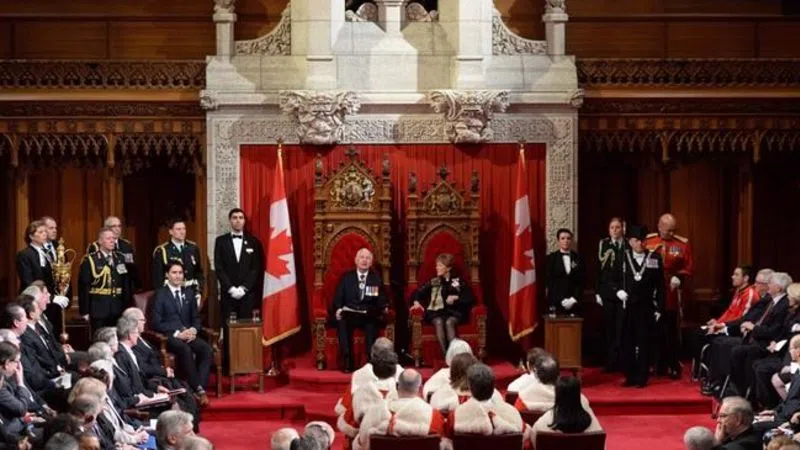
Liberal throne speech pledges to work with opposition parties, welcome their ideas
OTTAWA — Justin Trudeau ushered in a new era of minority Liberal rule Thursday with a throne speech brimming with humility, goodwill and promises of collaboration with opposition parties whose support he needs to ensure his government’s survival.
The effort worked, at least insofar as guaranteeing the government will win a vote on the throne speech. Bloc Quebecois Leader Yves-Francois Blanchet said his party’s 32 MPs will support it, despite serious reservations about its content.
The eight-page speech from the throne, is mostly penned by the Prime Minister’s Office but read by Gov. Gen. Julie Payette, who inserted a bit of flavour from her days as an astronaut.
“And we share the same planet,” she said in a passage emphasizing co-operation.

